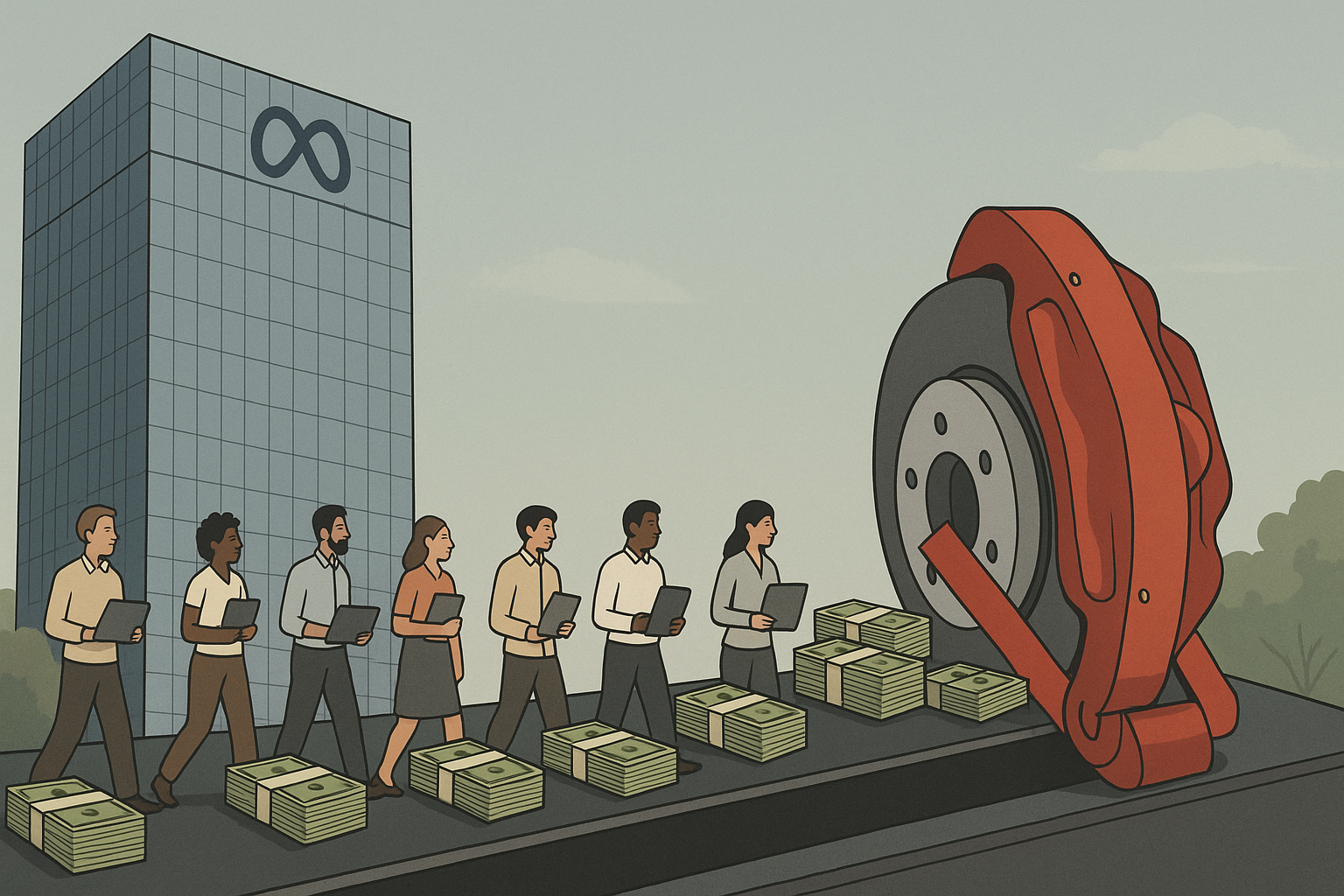Meta's ambitious AI hiring binge has hit the brakes. Hard.
The company that couldn't throw money fast enough at AI researchers just a few months ago has suddenly discovered fiscal discipline, according to a Wall Street Journal report that confirmed what many industry insiders have been whispering for weeks.
I've been tracking Meta's aggressive talent acquisition strategy since late last year, and this pullback feels both inevitable and strangely familiar. Tech's boom-and-bust hiring cycles are practically ritualistic at this point — a corporate version of binge eating followed by crash dieting.
Look, we've all seen this movie before. The script goes something like this: New technology emerges. CEOs panic about missing the boat. Checkbooks fly open. Talent wars ensue. Then reality (and CFOs) eventually crash the party.
Remember when blockchain experts could name their price? When "metaverse architect" briefly became the sexiest job title in Silicon Valley? Same energy.
What makes this particular correction noteworthy isn't just the timing — though occurring amid this week's tech market wobble certainly adds drama — but the sheer scale of Meta's previous commitments. We're talking compensation packages that reportedly reached $5-10 million for top AI researchers.
(Even by Silicon Valley standards, those numbers raise eyebrows.)
The freeze coincides with interesting developments elsewhere in the AI ecosystem. OpenAI appears to be struggling with its GPT-5 rollout, while Sam Altman has been making statements that sound increasingly... philosophical? Existential? It's hard to tell sometimes whether he's discussing product roadmaps or contemplating the nature of consciousness.
I spoke with three mid-level engineers at Meta last week who described a growing sense of unease about the company's AI strategy. "There's been this frantic energy to hire anyone with machine learning experience," one told me, "but less clarity about what exactly everyone's supposed to be building."
This tracks with what I call the "Hype Cycle Hangover" — that sobering moment when companies realize they've staffed up for a technological revolution without fully mapping out how that revolution translates to sustainable business models.
The math eventually becomes unavoidable. If you're paying $7 million annually for an AI researcher, exactly how much value must they create to justify that investment? And how quickly?
Meta's pullback could have ripple effects throughout the entire talent ecosystem. Universities and startups that have been hemorrhaging talent to deep-pocketed tech giants might find recruitment slightly easier. Compensation packages across the industry could stabilize or even decline.
That said, I'd caution against reading this as some kind of AI winter. The technology remains transformative — I've seen enough real-world applications to be convinced of that. What we're witnessing is less a technological reassessment than a financial one.
The question isn't "Does AI matter?" but rather "How many PhDs do we need on payroll before diminishing returns kick in?"
For investors trying to make sense of all this... good luck. The AI narrative has been supporting tech valuations like a load-bearing wall. Any perceived weakness tends to make markets twitchy. With Powell speaking Friday and tech stocks already wobbling, we could be in for a bumpy ride.
Then again, maybe this is just a momentary pause. Perhaps Meta's simply digesting its recent hiring spree before the next one. Tech companies aren't exactly known for their moderation, after all.
But my gut says we're entering a more pragmatic phase of the AI revolution. The honeymoon's over; now comes the hard work of building sustainable businesses around the technology.
After all, even the smartest AI in the world can't ignore the bottom line forever.
